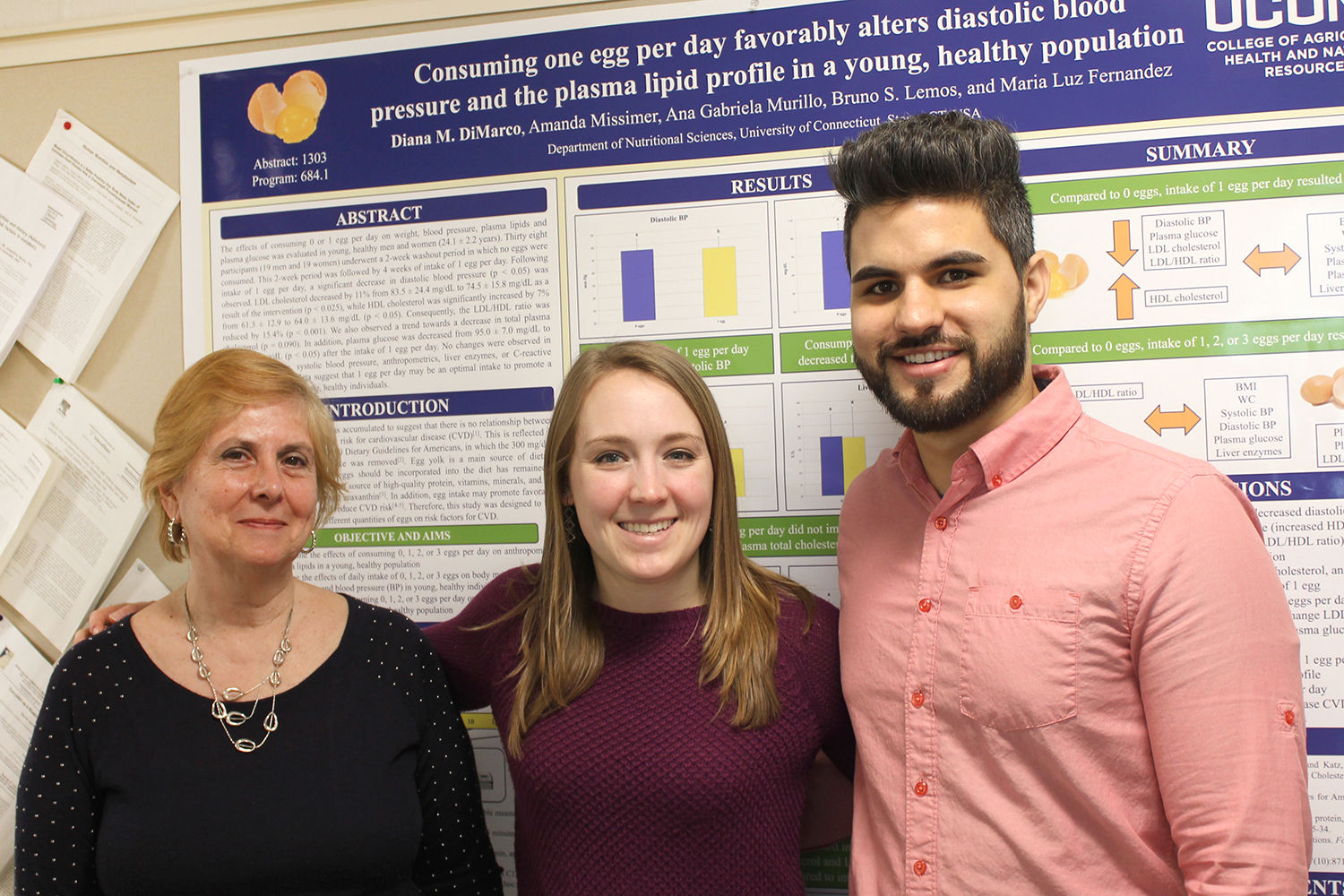Once maligned for raising plasma cholesterol levels, eggs are gaining favor as an inexpensive dietary source of protein, antioxidants, vitamins and minerals and are now considered a safe addition to a healthy diet.
Diana DiMarco, PhD candidate in the Department of Nutritional Sciences, completed a clinical study on egg consumption involving thirty-seven healthy adults between the ages of eighteen and thirty, both male and female with varying diet and exercise habits. The study was funded through the Esperance Family Foundation and the Egg Nutrition Center.
“Our goal of the study was to look at a number of biomarkers for cardiovascular disease,” DiMarco says. “We wanted to get an overall picture of what was happening while eating these different numbers of eggs.”
The study began with a two-week wash-out period where participants did not consume eggs. After that, they were instructed to eat one egg per day for four weeks, two eggs per day for four weeks, and three eggs per day for four weeks. Blood was drawn at each interval and tested for HDL and LDL cholesterol, triglycerides, glucose, antioxidants lutein and zeaxanthin, free choline and TMAO (Trimethylamine-N-oxide), a metabolite derived from gut bacteria. Blood pressure was also monitored.



